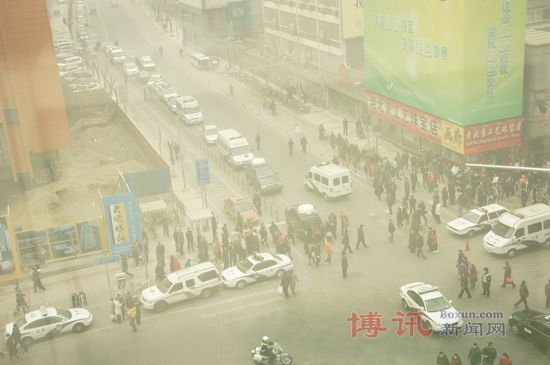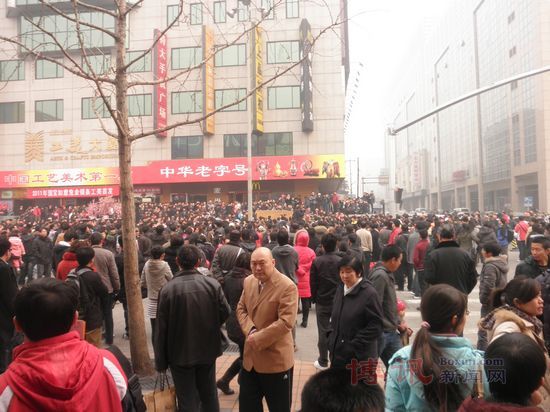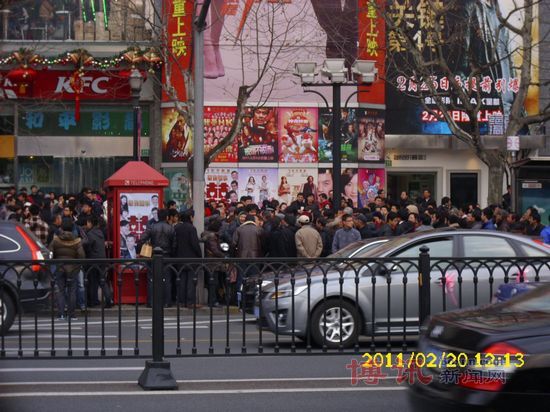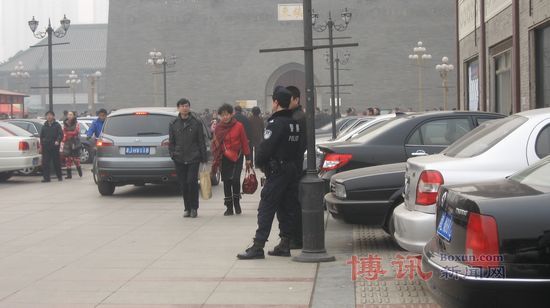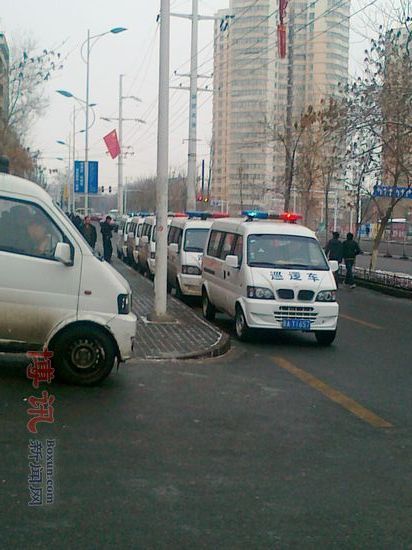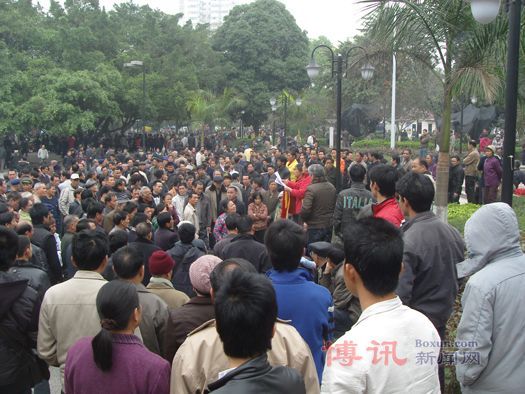Washington's formula for regime change underwent a makover in the 1980s. In a bid to ensure US political and economic interests were safeguarded, CIA backed coup d'états ousted democratically elected leaders from Iran to Chile.
Washington's formula for regime change underwent a makover in the 1980s. In a bid to ensure US political and economic interests were safeguarded, CIA backed coup d'états ousted democratically elected leaders from Iran to Chile.
In their place were brutal dictatorships and governments that committed heinous crimes against their people.
By the 1980s, the reign of terror that blazed across Latin America was too much for most people to stomach. From death squads to torture chambers and various massacres, the Latin American generals who trained in the US to spread democracy around the world quickly gained reputations for major human rights abuses.
To replace the overt support for dictatorships, a new concept for regime change was born; one that sounds and looks better – democracy promotion.
The concept of democracy promotion is simple; finance, train, and politically back local opposition forces around the world that support the American agenda.
Dr. William Robinson is one of the foremost experts on Washington's democracy promotion initiatives, he wrote the book 'Promoting Polyarhcy.'
"In Latin America, in Eastern Europe with the Velvet Revolutions, in Africa, in the Middle East, really all over the world, the U.S. set up these different mechanisms now for penetrating these civil societies in the political systems of countries that are going to be intervened and to assure the outcome is going to be pleasing to Washington's foreign policy objectives," said Robinson.
Lawrence Wilkerson, the former Chief of Staff to former Secretary of State Colin Powell said, "We do this through surrogates and nongovernmental organization and through people who are less suspecting of the evil that may lurk behind their actions than perhaps they were before. Have we learned some lessons in that regard? You bet! Do we do it better? You bet? Is it still just as heinous as it has always been? You bet!"
So while the goal remains the same, it's no longer the CIA but the US Agency for International Development (USAID) and its partners spearheading the effort.
Allen Weintein, one of the founders of the National Endowment for Democracy (NED) explained to the Washington Post in 1991, "A lot of what we do now was done covertly by the CIA 25 years ago."
And like the CIA, USAID, the National Endowment for Democracy and a number of similar organizations receive funding from Congress.
"Millions and millions of U.S. tax payer dollars go every year into funding for political organizations and campaigns in different countries in the world that promote US agenda. Most U.S. citizens are unaware of the fact that that is how their money is being spent, to meddle, and to influence and to interfere in other nation's affairs," said Eva Golinger who has been investigating the US's democracy promotion efforts in Venezuela.
The concept of facilitating regime change through democracy promotion has garnered wide criticism not just abroad but also at home in the United States.
Congressman Ron Paul once wrote "It is particularly Orwellian to call US manipulation of foreign elections 'promoting democracy.' How would we Americans feel if for example the Chinese arrived with millions of dollars to support certain candidates deemed friendly to China?"
"I think it's terrible, we use taxpayer's money to go over and use our military and the CIA these programs that say 'this is what you outta do' and influence them. There is no authority for that, it doesn't work, it teaches a lot of people to despise us," Congressman Paul told RT.
Funding and how it operates
Democracy promotion has been a long standing element of US foreign policy. It operates as a key component of soft power linked to the diplomacy apparatus of Washington.
"The moneys go from the U.S. State because we need to see this starts with the U.S. state.They go into the country that is going to be intervened and inside that country they identify a series of groups that are going to receive this money but also receive this kind of political influence that comes with giving money and comes with on the ground operatives tied to this money," explained Robinson. "When the U.S. starts an interventionist program, they identify the different sectors it wants to organize.So it's identifies the trades union movement and where are the pliant parts, the objective is to marginalize radical trade unions and bolster conservative trade unions.They identify women movements, marginalize radical movements and mobilize conservative women moments.Then they do the same with youth.All sectors of civil society will be identified and those that can be brought on board to the US interventionist project will be brought on board and funded."
One of many examples is the color revolutions in Eastern Europe.
"As I saw happen for example in Ukraine, as I saw happen in Georgia, as I see happening in other places too, they don't just propagandize or attempt to help with words and rhetoric that opposition, they actually do things that give that opposition more power," said Wilkerson, recalling the involvement of USAID and NED.
William Blum, a US historian and the author of the book "Killing Hope: US Military and CIA Interventions since WW II" said, "They copy from one area to another, the first one that was successful was the one in Serbia and they borrowed things from that revolution.Certain slogan, symbols and colors, and they use it again and again."
Analysts recall the similarities in the color revolutions where youth groups were energized, rock bands lined up, and laser shows put on. The movements were marketed as cool.
"The objective was to make them into a national passion, a national fad if you well," said Blum.
Student leaders of the Serbian youth group Otpor who played a key role in the 2000 ousting of Slobodan Milosevic met 7 to 10 times with officials from USAID affiliates, according to the NY Times. The same group also received several hundred thousand dollars for demonstration material, t-shirts and stickers.
On the other side of the world, in Latin America, some of the most active and capable programs have and continue to flourish in countries where Capitalism isn't the agenda.
Blum contends, "Venezuela, easily, that is the place where they send the most money.Chavez is enemy number one.
One opposition lawmaker that has been a key figure in Washington's democracy promotion model in Venezuela is Maria Corina Machado; a woman who is by many standards and to plenty of critics, a product of US interventionism.Machado rose to fame with an NGO known as Sumate, an organization that received hundreds of thousands of dollars from USAID and NED. Sumate led fierce campaigns against democratically elected President Chavez and his Bolivarian Revolution, including a referendum against the President in 2004.
"In our case, we did receive funding from NED as did several, tens of organizations here in Venezuela," Machador confessed.
Like Georgia's Saakashvili, foreign financing bolstered Machado's image on the national and international stage, even granting her a meeting with President George W. Bush.
"This is about promoting an individual; this is about promoting someone who has the capacity to rise to power and share US agenda," said Golinger.
Since 2000, USAID has activated more than 620 programs in Venezuela alone, costing up to $20 million dollars.
In 2002, a government document from USAID's Office of Transition Initiatives explained a possible coup against Chavez was in the making. The author of the memo, OTI director Russell Porter wrote about the urgency of "sending an assessment team to Venezuela as soon as possible with a prejudice toward starting an active program to support civil society and the media."
Another 2003 declassified memo drafted by USAID's OTI in relation to the 2004 referendum said, "the overarching strategic objectives of the program remain the same: that is supporting the continuation of stable, free-market orientated democracy in Venezuela."
Other documents declassified through Freedom of Information Acts show USAID affiliates NDI and IRI were awarded $500,000 each for campaign schools in Venezuela.These campaign school s were responsible for campaign strategy and organization, message development, outreach, fund-raising, public relations, get-out the-vote techniques, and candidate selection. That same cable also cites the importance of co-opting Venezuela's poor, with the barrios as the main target. The barrios have long been known as Chavez strongholds.
In Latin American, democracy promotion programs target governments or organizations that have a socialist, anti-free market leaning.
The President of NED Carl Gershman insists democracy promotion does not mean regime change.
"To him [Gershman], Democracy equates to Capitalism, the idea of socialism and democracy is alien to him, if he is working against a socialist government or movement, he is working for democracy," said Blum.
Funding democracy with US taxpayer dollars
Democracy, US-style, doesn't come cheap. Most of the money flows to forces in line with US interests. Washington has spent a far amount of money spread democracy worldwide.
"We're talking here about hundreds of millions of dollars, and over the years since this policy was consolidated, we're talking about billions. The State Department will have an appropriation of several billion dollars for what it called the Office of Transition Initiatives. The Congress will have an appropriation hundreds of millions of dollars for the National Endowment for Democracy, USAID will have its own budget as well," said Robinson.
Over the past two decades, USAID has spent 9 billion dollars promoting Washington's democracy initiatives.
The National Endowment for Democracy (NED) received $132 million dollars during 2009; nearly all of the money came from U.S. government agencies.
However, USAID and NED are not the only ones. There is an entire network of organizations involved in the democracy promotion business such as the National Democratic Institute (NDI), the International Republican Institute (IRI), and the American Center for International Labor, the Center for International Private Enterprise and Freedom House.
But these are just the tip of the iceberg. There's an entire network of organizations involved in the democracy promotion business.
Although all the organizations insist there is no political affiliation, the board of directors for both NDI and IRI suggest otherwise.
Both boards consist of former Secretaries of State, national security advisers, members of Congress, and even Clinton, Bush and Reagan administration officials.
They all have a history in Washington. One deeply rooted in sustaining the current foreign policy priorities.
Blum said, "to understand US foreign policy, one must understand a very basic fact; the US government wants to dominate the world."
He insists the soft money working behind scenes is directly linked to the CIA.
"They had to have a new organization with a nice sounding name, with the word democracy, which would be free of the taint of the CIA, and that's why the NED was created," Blum added.
One of the key areas the democracy promotion network has invested in is Central America, where there is a rising tide in leftist, socialist ideologies.
According to the North American Congress on Latin America, USAID's latest $2 million disbursement to Honduras was based on proposals to make the Central American country economically competitive on the global market.Since 2004, the United States has spent over $18 million on democracy promotion in Honduras.
While USAID requests $800,000 for more democracy promotion programs in Honduras for FY 2011, journalists and activists are being brutalized and killed under the U.S. backed government
In Egypt, a revolt against the US backed policies of Hosni Mubarak regime has mobilized these agencies to co-opt opposition groups to ensure the upcoming parliamentary and presidential elections are beneficial to Washington.
Wael Nawara of the opposition party Al Ghad told RT funding and guidance from NED, NDI, IRI and USAID has increased in the past two years, and that NDI and IRI are operating in Egypt illegally.
Other countries the US has intervened in include the Philippines, Haiti, Nicaragua, Ecuador, El Salvador, Kyrgyzstan, and the Palestinian territories.
The USAID has implemented so called democracy promotion initiatives in over 100 countries in the past 25 years. This year's budget is $1 billion dollars. According to USAID's website, spending $10 million in a target country increases its amount of democratic change fivefold.
Blum insists there is pure hypocrisy in Washington's democracy promotion agenda. "We have a very clear law on the books prohibiting foreign governments from interfering in our elections of supporting any candidates with money.So we do exactly abroad what we prohibit here at home," he said.
Encouraging transparency is a stated core element of the US government's democracy promotion efforts in foreign countries. But here at home the agencies themselves are far from transparent. Detailed program budgets and information are unavailable to the public and contact with the media is limited. Over the last six weeks, RT repeatedly requested interviews from USAID, NED, IRI and NDI. All of these requests were denied or unanswered.
Pepe Escobar, a South America based journalist for the Asia Times said US democracy promotion programs use political or other grievances in countries to push and coordinate their own agenda.
"They use the locals," said Escobar. "They mix their preoccupations and their grievances with the classic full spectrum dominance Washington agenda."
The US targets nations who are strategic competitors and regimes that antagonize the United States. It utilizes the Pentagon and CIA strategy of full spectrum dominance.
Escobar explained that anti-government messages are often propelled through mainstream corporate media outlets in Brazil and Venezuela that are indirectly linked and influenced by US organizations like Freedom House and the National Endowment for Democracy.
He argued that over time it is possible other nations, like China, will use their growth to influence US elections; however that could take some time.
"They [China] still do not understand the notion of soft power and smart power," Escobar said. "Maybe it's going to take a generation to understand how the West thinks."
Jacob Hornberger, the president of The Future of Freedom Foundation explained that this policy of democracy promotion is not merely an Obama or Bush policy, but instead a systemic issue in overall US policy.
"This is essentially US foreign policy and has been for decades," he said. "They funnel money into elections, they engage in invasions, assassinations, coups, regime change operations. That's what foreign policy has been about for a long time."
Those who feel the policy is truly the promotion of democracy are operating under a lie, Hornberger argued.
"The Government has no more commitment to democracy than it does to dictatorship," he said.
The US government supports those who best serve their interest at a given time, including having supported leaders Saddam Hussein in the past.
"They're trying to get their people in public office in countries all over the world," Hornberger said. "They will stop at nothing to affect that kind of regime change when the administration in that country isn't towing the official line."
With the government on the brink of bankruptcy, Americans should be more outspoken against these programs which spend millions in US taxpayer dollars.
The US has entered the realm of imperialism and needs to return to the republican form of governance it was founded on, argued Hornberger.
"This is not the limited government paradigm on which our country was founded. It's a paradigm based on an empire from which our nation was born in resistance to empire," he said.
"What Americans have to decide is what do we want? Do we want an empire that is bankrupting this country?" asked Hornberger. "Or do we want to restore a republic and a sense of normality and peace and prosperity to America?"
__._,_.___








